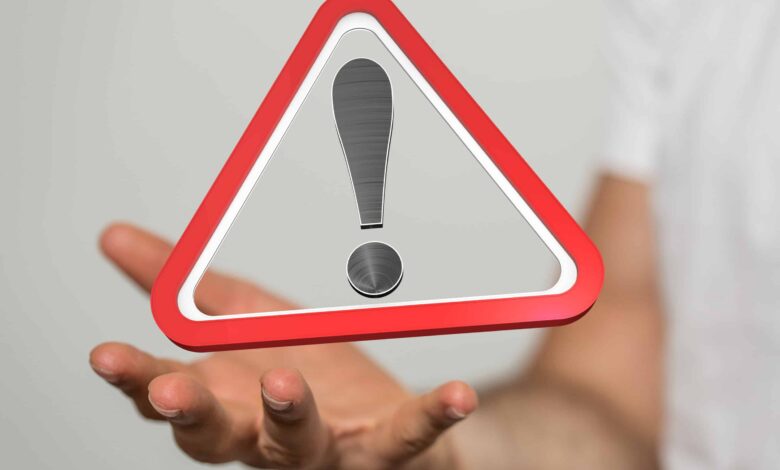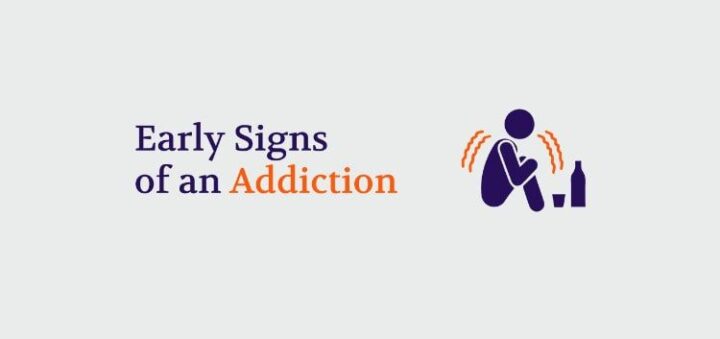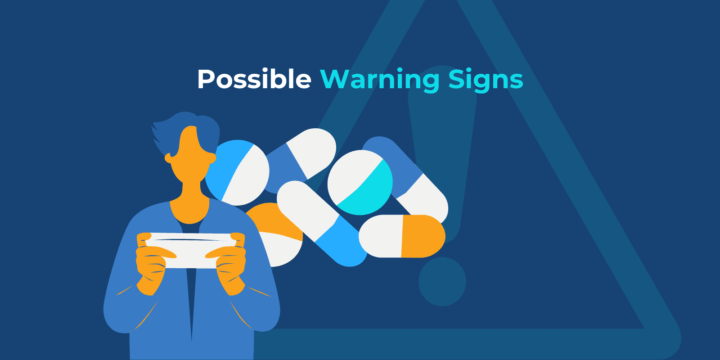Understanding Addiction’s Subtle Beginnings: What Are the Early Signs of Addiction?

Substance addiction has long been portrayed in the media as suddenly and inexplicably consuming a person’s life. In reality, it typically creeps up gradually as alcohol or drug use transforms from a habit into an uncontrollable compulsion. Knowing the subtle but progressive warning signs in the early and middle stages can help identify when casual use is turning into something far more harmful. However, many people miss these clues or downplay their significance until addiction has already devastated health, relationships, and stability. Understanding the red flags that indicate escalating trouble can make all the difference in seeking help before reaching the severe late stages.
The transition rarely happens overnight or out of the blue. There is usually a progression of incremental red flags signaling that use is spiraling out of control long before it becomes a crisis. Being aware of the telling changes in behavior, priorities, and choices during early and middle addiction stages allows for vital self-awareness or concern for loved ones. Tuning into these subtle clues and indicators can set the stage for life-saving intervention well before hitting “rock bottom”. Catching the signs of burgeoning addiction early on remains key to reversing course and reclaiming health and happiness before severe consequences set in.
Increased Tolerance

One of the most tell-tale early signs of fledgling addiction is needing more and more of the substance to achieve desired effects. As tolerance progressively builds, you may find yourself using higher doses, drinking for longer periods, or consuming faster to get the same peaks such as relaxation, confidence, or euphoria that lower amounts previously induced.
This creeping need for increased consumption to counteract rising tolerance drives escalating substance use that can quickly fly out of control. It shows the brain and body adapting to frequent alcohol or drug use by reducing sensitivities. Where early experimentation produced intense results from modest doses, a tolerance threshold now dulls those effects, requiring heavier self-medication to compensate.
Pay very close attention if hangovers fade over time, standard liquor servings hit your system weaker than before, if blackout episodes are non-existent despite sky-high consumption hovering into dangerous zones, or if you can ingest amounts that once made you violently ill years prior. This apparent super-human tolerance signals the body transforming from an occasional recreational user into a high-functioning addict.
Rising tolerance also pushes people to unconsciously chase the fleeting euphoria of early use stages. However, increased dosages fail to ever induce the same vibrant and novel reactions from those first experimental sessions. Still, the futile chase persists, trying to recreate dulled experiences, leading to reckless bingeing well past safe limits.
Ever-creeping tolerance fosters the illusion of handling one’s liquor or drugs exceptionally well compared to lightweight peers. But biologically, it confirms the rapid progression of addiction now requiring you to ingest quantities exceeding normal human capacity just to catch a modest buzz most would blackout on. This rising tolerance loudly signals that drinking or drug use has crossed the line into treacherous territory where addiction breeds chaos.
Neglecting Responsibilities

As addiction gains momentum, other areas of life often fall by the wayside, as drinking or drug use consumes greater mental bandwidth and time. Early on, you may blow off a couple of social engagements, phone in sick after a rough hangover, or shrug off lateness chalked up to sleeping off a wild night.
However, addiction has firmly taken root when every aspect of life revolves around the next chance to drink or get high with little care for anything else. Personal health, financial stability, professional ambitions, and close relationships grow insignificant compared to serving intense cravings and chasing that euphoric recall of early use.
Soon enough, those sporadic missed parties or late arrivals to work turn into full-blown apathy about life responsibilities. Sudden total indifference towards bills, self-care, career advancement, or family bonds signals escalation into addiction’s troublesome middle stage. Quitting hobbies cold turkey, abandoning old friendships, calling out “sick” to binge heavily, and extreme irritability when unable to access substances point to out-of-hand progression as well.
Loved ones will notice drastic personality changes, too, as the substance abuse hijacks brain pathways, killing natural priorities, inhibitions, and judgment calls. Heavy users grow notoriously selfish, unreliable, negligent, reactive, and dishonest as addiction takes the wheel.
While early substance abuse may casually impair areas of life, descending into full-on addiction indicates a total life overhaul to serve just one master alone – the unquenchable thirst for intoxication around the clock. The substance now owns this person’s motives, schedule, responsibilities, and soul 24/7.
Using Alone More Often
In addiction’s early phase, people frequently drink or use drugs in social settings for enjoyment. But as addiction sinks its teeth in, getting intoxicated or high becomes preferred over normal social interaction. Given the choice between grabbing drinks with friends or partying alone with the substance, the latter increasingly wins out. Preferring alone time with drugs or alcohol rather than engaging with loved ones shows how far out of control the compulsion has spiraled already.
Failed Attempts to Quit
As the reality of addiction settles in, half-hearted attempts to cut back or quit often follow. Saying “I’m done” after the millionth bad hangover seems reasonable at the moment. However, resolve quickly fades as cravings resurge driving backslide into overuse again and again. The “this is the last time” promise made more to oneself rather than others signals that addiction has already taken firm hold. Each failed quit attempt provides more evidence that willful choice is no longer driving substance use. Addiction has claimed control. and treating substance abuse is paramount.
The Bottom Line

Noticing the early signs like tolerance building, neglected obligations, isolation for intoxication opportunities, and failed cutback efforts provide crucial lead time to confront addiction. The longer it progresses unchecked, the more extreme and dangerous it becomes. Getting ahead of the curve by tuning into these subtle clues can set the stage for life-saving help well before hitting “rock bottom”. Catching addiction early on remains key to reversing course and reclaiming health and happiness.
